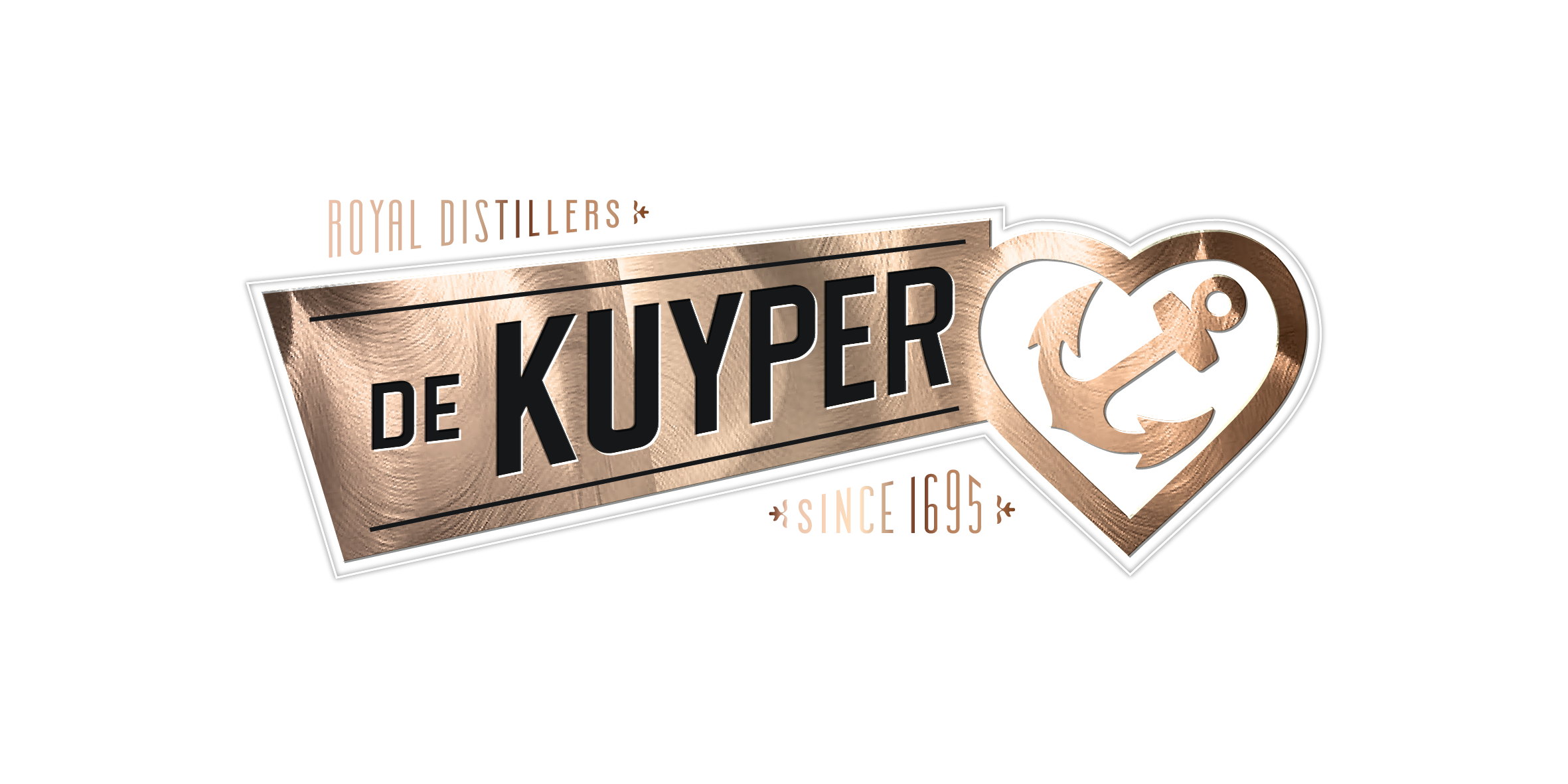
Read the news, and everything is crisis: the pandemic, daily case numbers, stagnant wages, face masks, staff shortages, businesses struggling. We've had a rough couple of years. But get out of the algorithm, and start talking to people, and you might just find reasons for hope.
The hospitality industry has had it tougher than most, but in cities and towns across Australia you'll still find bartenders and operators ready to take the leap and open their own bar. That desire to give hospitality doesn't go away in tough times.
But how does one open a bar in a year like 2021? In this four-part video series, we're speaking to passionate providers of hospitality doing just that. They're sharing with us their journey, their tips and their advice.
First up is Kurtis Bosley, who — at the age of just 30 — has just thrown open the doors on his latest bar, Banco. It wasn't easy: Bosley had to persevere through three lockdowns to get here. Bosley is an award-winning bartender and the owner of Corretto in Dee Why, on Sydney's Northern Beaches, and you can watch the video below.
Bosley has a lot of advice to share, so below, lightly edited and condensed for clarity, is our full interview with him. Here, Bosley talks about the pressures of taking over an existing space, the virtues of building from scratch, and how he knew he was ready to open a bar.
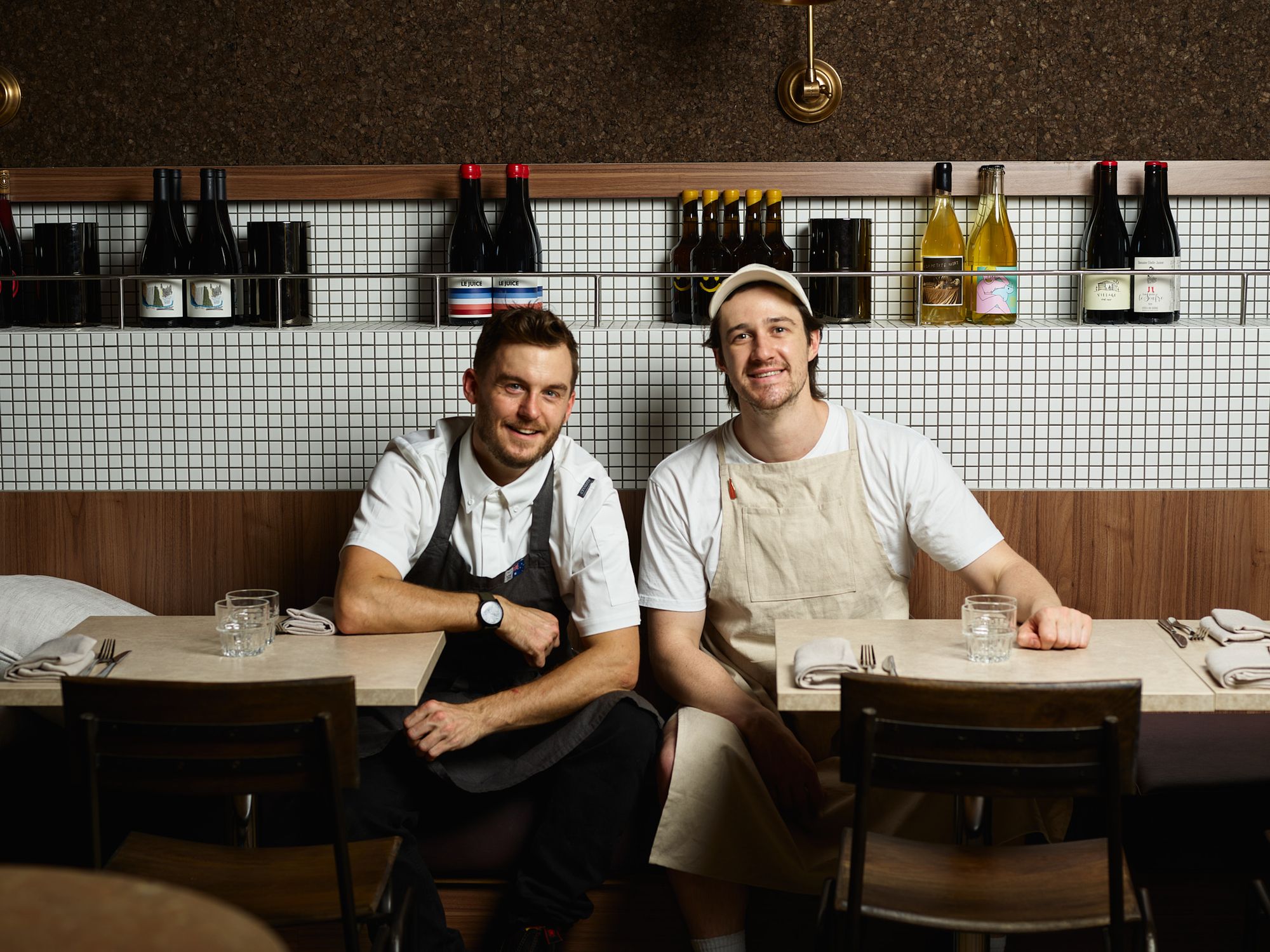
Boothby: Where are we?
Kurtis Bosley: I’m the owner here at Banco Manly. This is the second venue — a lot smaller, a lot more refined, 100 percent night-time, looking to explore [the] restaurant bar and what that is.
Tell us about Corretto in Dee Why, your first place.
That's now been there for going on three years. The approach was to do coffee ’til cocktails. A Corretto is a drink, you spike coffee with your booze: grappa, Fernet Branca, or any kind of aperitif. And we wanted to explore what that meant to go from early morning drinking right into the late night. As a space, we learned that you can't dictate what people want to drink, regardless of what kind of approach you go into it [with]. If you don't have the area and you don't have the clientele for it, then you can't really push stuff down people's throats — it's just not gonna happen. So we've kind of moulded what that space is, up [to] where we're quite comfortable with what we serve today.
Because the interesting thing about you is, with Corretto, your first place, you took over an existing space. But with Banco, this was a shell beforehand.
So we ripped the entire place out, we started fresh, we didn't have wiring, we didn't have anything. If you walked in, it was a box, it was an absolutely clean slate, which is really cool. With that comes the opportunity to start to really dictate what the offering is. We didn't have the same at Corretto, which was buying an existing business, rebranding in a space that has had so many people through it. The last three years, the space before we picked it up had four owners. So each different owner has their own kind of thing. And all of a sudden everyone that is walking up and down The Strand, they know that there was this experience there, that experience, so all of a sudden this preconceived idea about what they will get in that space really dictated what we were doing. Taking over that space, there was zero dollars in my bank account. I didn't have the opportunity to not have those people coming in at least spending money to get through that first month, second month, third month, and pay some invoices.
So you ended up having to cater to what they thought the space was, rather than what you thought the space was?
Yeah. And that was really difficult. I gave myself six months before rebranding. And that was for that exact reason. Because I knew that I'd have a little bit of time that I could get people in, start to talk to them about what I wanted, but kind of in their own way: ‘Hey, what would you like in this space?’ And all of a sudden, you've created a conversation with the people that are coming in already, they start to talk too: ‘Hey, there's going to be something happening.’ So we gave ourselves six months to go, okay, pay your bills, get a little bit to where you're comfortable to have a few really tough months. Because that was the thing — when we rebranded it was a really, really tough three to six months.
For people who are starting out, maybe it's their first bar, how important is that ability to weather the storm for a couple of months? Because I mean, ideally, you open the doors and you're busy from day one — but that's not necessarily how it's going to go.
Not 99% of the time, it's not. It takes a very particular person to do this. And I think anyone who wants to make money, they're not doing this, like realistically. So if you think about money, and you think about being able to budget for that, then fucking hats off to you — there's a particular person that thinks that way. Then there's a particular person that goes headfirst and just dives in and goes: ‘Fuck, how am I going to clean this mess up?’
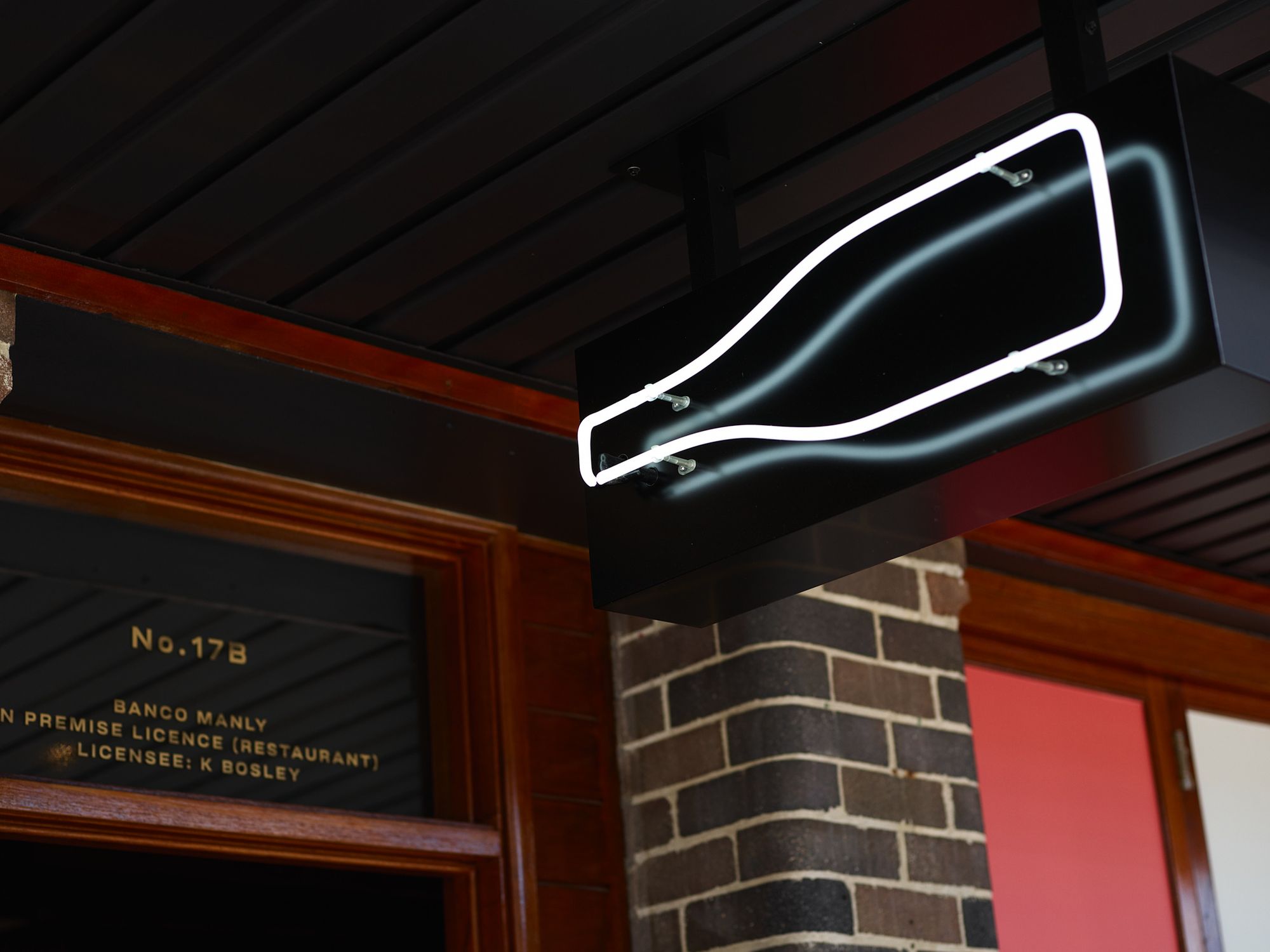
Some of the owners I've talked to have said to just go and do it — you will never be ready to do it. What do you think about that? How ready did you feel when you started?
Oh, 100 percent ready. Because I had no fucking idea what I was doing. Very genuinely. It's such a genuine thing. If you understand enough about it, no fucking way would you do this. Like genuinely, it's just, it doesn't make sense on paper.
So why do you do it then? What's the thing?
I love it. Genuinely, though, I have a lot of fun doing it. What I personally enjoy about it is, I come from an architecture background. It's creative, but I couldn't make that creativity stick with architecture — it just wasn't me.
You're taking a different approach to what other people do. A lot of people open up in the CBD, or in the inner city area, whereas you've spread your wings a bit on the beaches up in Dee Why and now Manly. How do you think that's been different to maybe say, setting up in the city? Why have you done that?
Two big reasons. So when you're setting up, you need to ensure that you've got people around you that can come and support. With me, I feel a really strong base around the Beaches, I've worked around the Beaches, I've worked on the North Shore, and I've lived on the North Shore. So by firstly setting up somewhere I'm comfortable, somewhere where I've got people that I know, that does keep you afloat. Setting up in the CBD, it's such a great opportunity, because there was — is going to be — a lot of people always around. So the approach in the city is, you have to be good to go from day one. And you have to have a really good product from day one. That's really difficult. That's something that maybe in the future, I'd have the confidence to do. But by starting where I started, I had the opportunity to ease my way into it. Now I'm doing this by myself, so it was always going to be a long time for me to really get comfortable in what I was doing and how to approach it. I personally don't believe I would have made it if I went straight into the city and did it because I just didn't have that experience.
How old were you when you opened Corretto?
I was 25. So just turned 25.
25. That’s pretty young.
Yeah. But I think, again, it was the opportunities that I got prior to doing it. Like, I was an ops manager of a pub group when I was 23. I got put in positions that I was very fortunate enough to be in at an age [when] I probably shouldn't have been doing it.
How did you go about making that first leap into finding a space? What advice do you have for bartenders wanting to do this themselves?
That's one you can't rush into. It took 12 months of me not really looking but being aware of what's around, like, you've talked to your commercial real estate agents, you find the area you want to go in that's going to make the space work. And you'll always have two or three big commercial real estate agents around that. Drop them an email and just say, 'Hey, I'm looking for a space, 100 square meters, for a restaurant.'
Did you have any issues being 24 or 23 at the time and getting meetings with these guys? Did they take you seriously?
Oh, God, no. But you never tell them your age, and you never meet them face to face, just shoot the email and you get on the list. Once you're on the list, they go, ‘Okay, this guy is looking for something.’ And it wasn't until they met me, [that] they kind of go, 'What are you doing?' We went through a couple of different spaces, originally looking around Surry Hills, I thought that was a really cool area — Potts Point I had a couple of looks around. And that to me was the best thing in the world. But you have to live close to work, like as much as I'm sure people don't, it makes life so much easier. And if you're going to be there to fix problems, if you're going to be there because you're understaffed or you need someone to drop in, if you're not close by, you're not going to be able to help them — you're not gonna be able to do your job to the best of your ability. That's when the Beaches thing started to make a lot more sense to me.
Is it about building relationships with commercial estate agents?
You have to. All the valuable places will always go to the big operators and known operators, or the people who've had the conversation [and] made the relationship with the commercial buyer or commercial sales agent. And then most of these places won't make it on the map because there are solid places. You don't want to pick up a dump, because it will cost you a lot of money. A lot of fucking money that you don't want to spend. So if you can get lucky and you can walk into a place, then that's through relationships, and that's really important.
For people looking to do this, they're gonna have to save for a while, right? Are you going to need some cash reserves?
There's two interesting approaches to this. This comes back to the experience that I've had with buying the pre-existing space, versus finding a shell and building a space. So building a space, expect to double whatever you think you're actually going to spend. Corretto Dee Why, that was a bought business. That was really lucky. When you buy a business, which you get for relatively cheap — for what you think you'd open up a place with. The opportunity that you have by doing that is if someone wants to walk away from it because they've been in there for a year, it's not making money and you come and talk to them [and] take it off their hands.
If you find a place that is up and running and operating — this is really important — go through there and really cost up the equipment, because that's gonna cost you big money. If there are big issues with it when you walk in —the coolroom, fans, flooring, roofing, plumbing, are really important ones to check, because that's going to cost you 10 to 20 thousand dollars. If there are real big issues with [the space], anything structural, you could get pushed out because there's a structural crack in the slab on top of the roof; get a builder to go through it, make sure there's nothing structural because, again, the building owner might say, 'Mate, there's a crack in the slab, we have to get you out.' And you could have just built in a full place, and all of a sudden, you'd been pushed out and having to knock it all down. So it’s worth a double check. But if you're building a place, it's a lot more unfortunately.
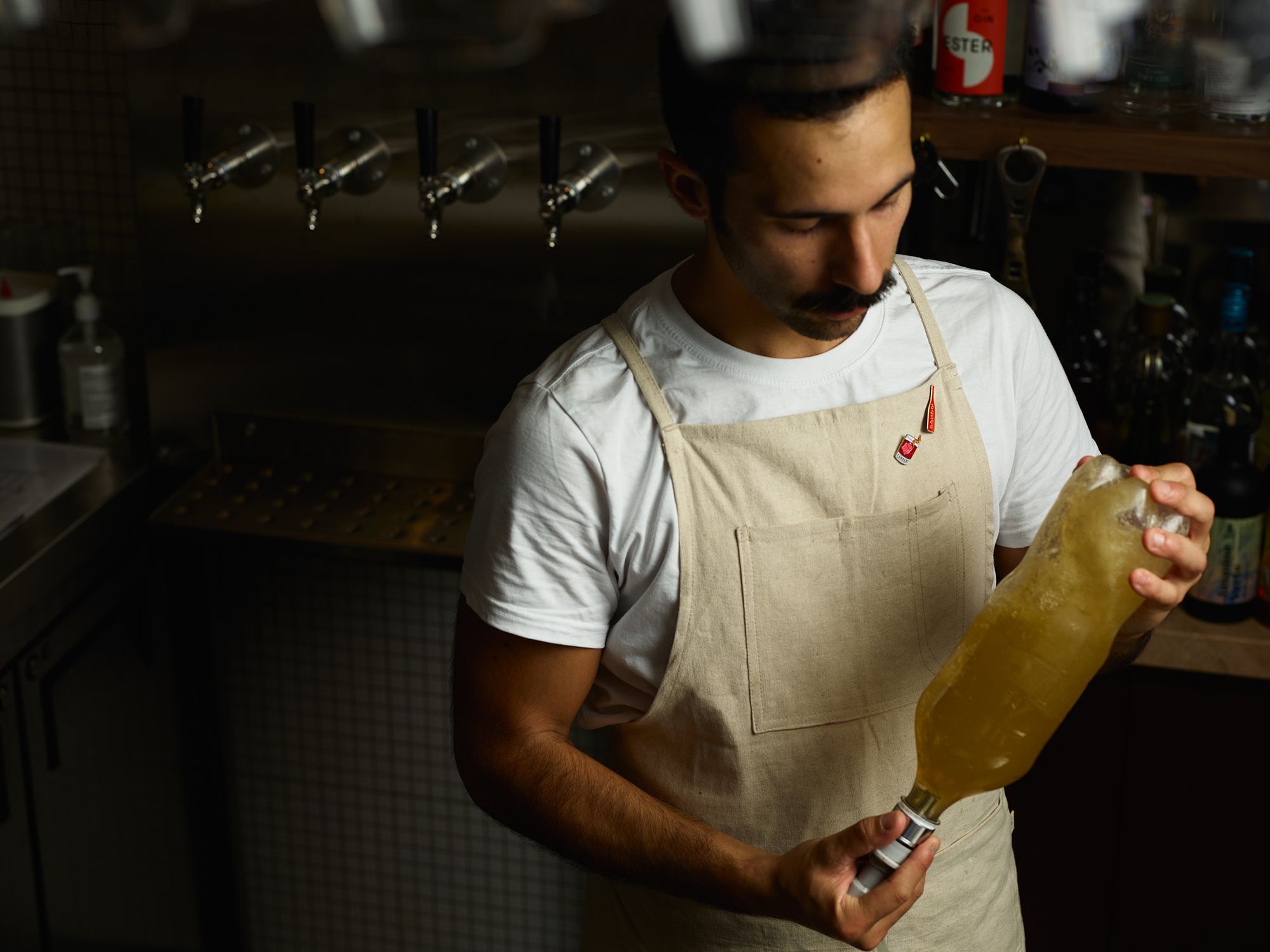
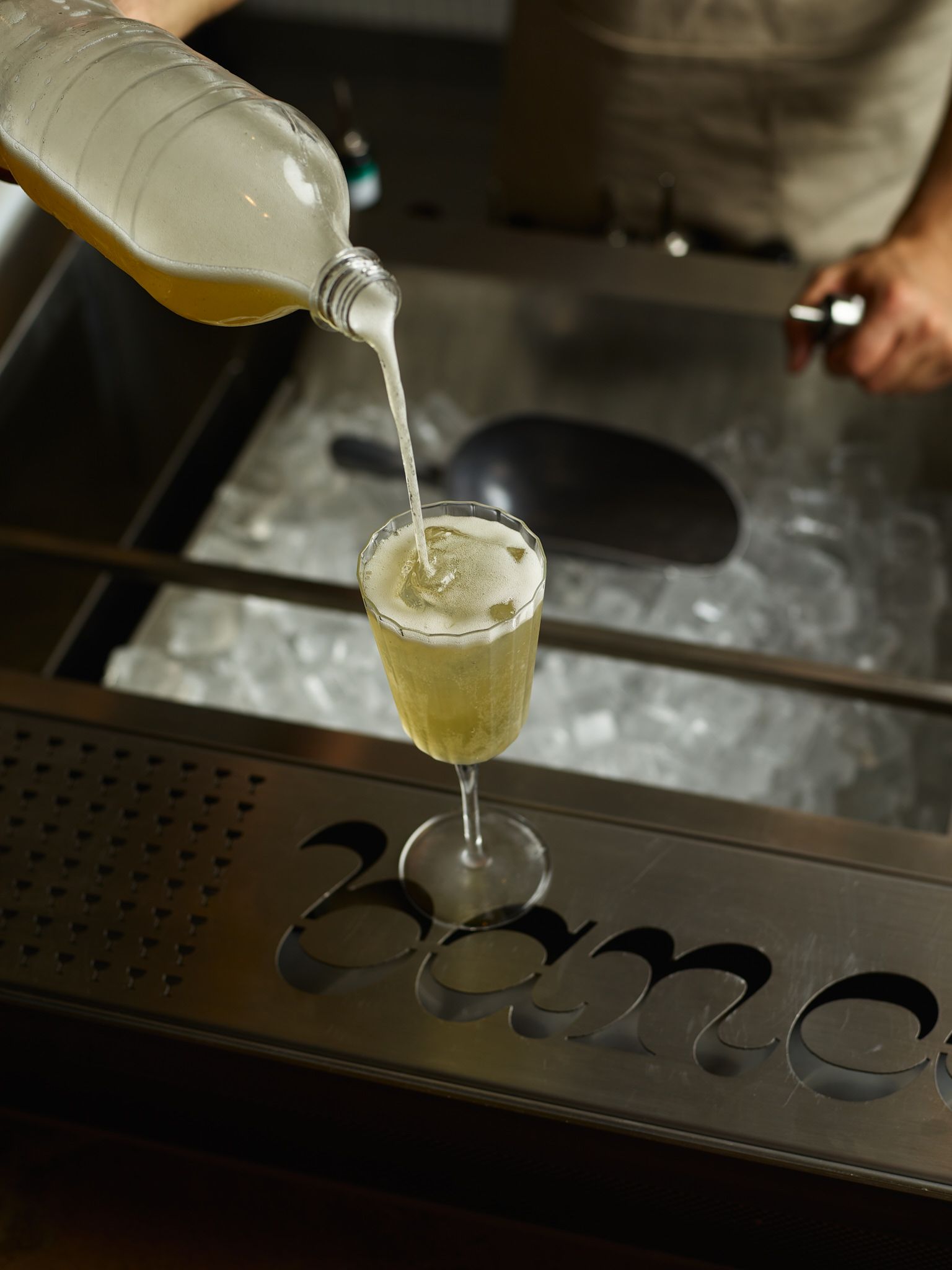
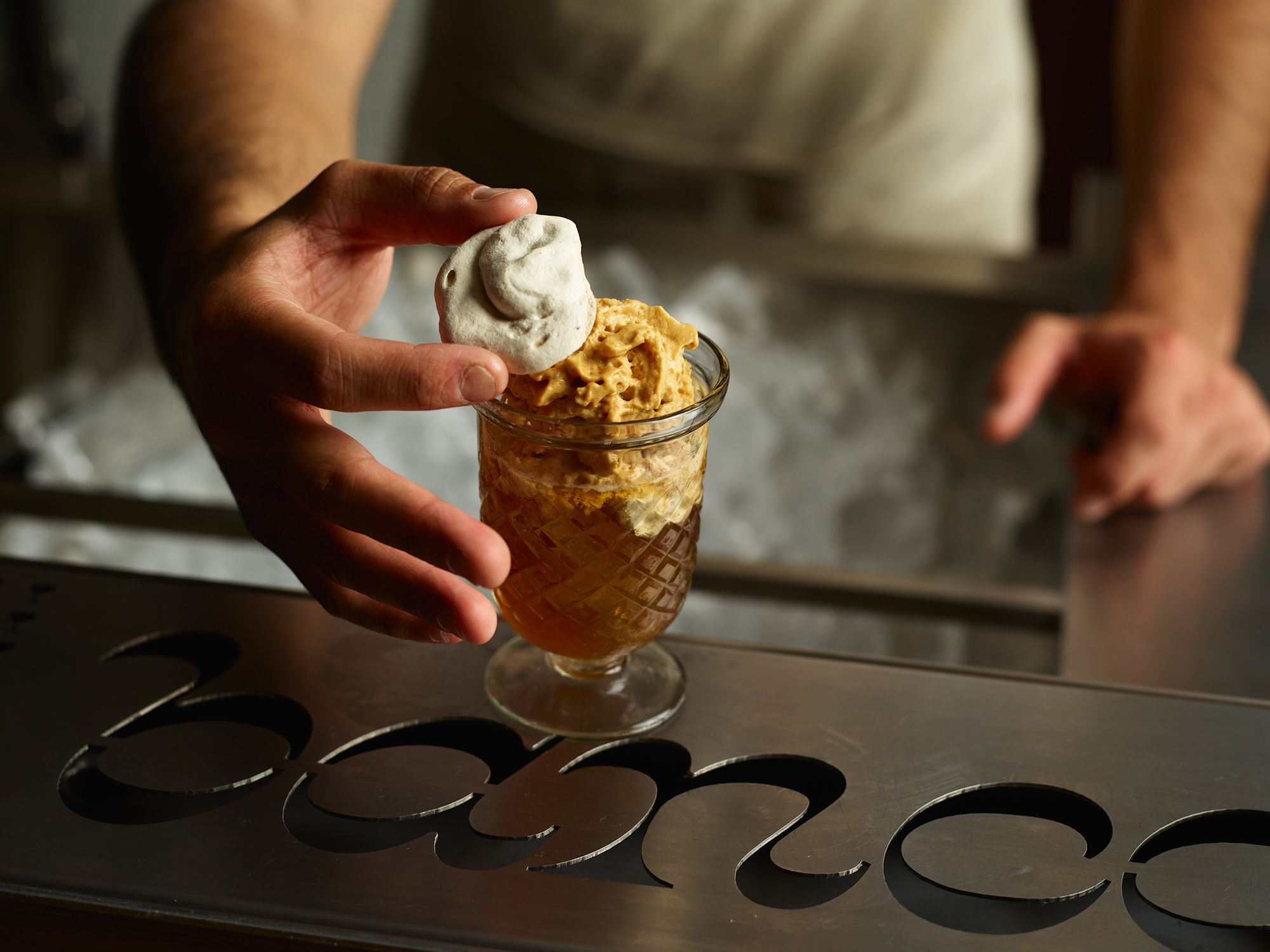
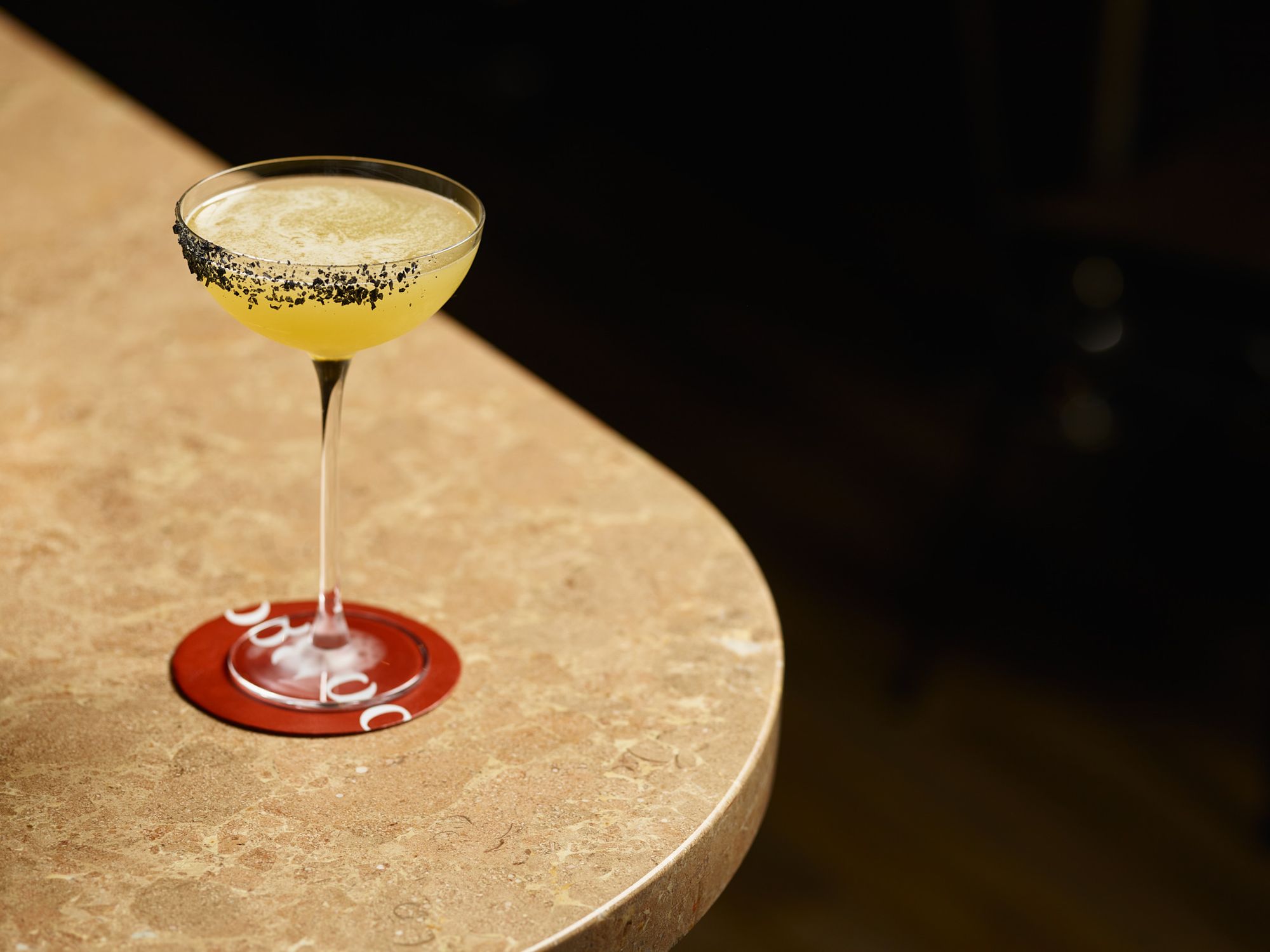
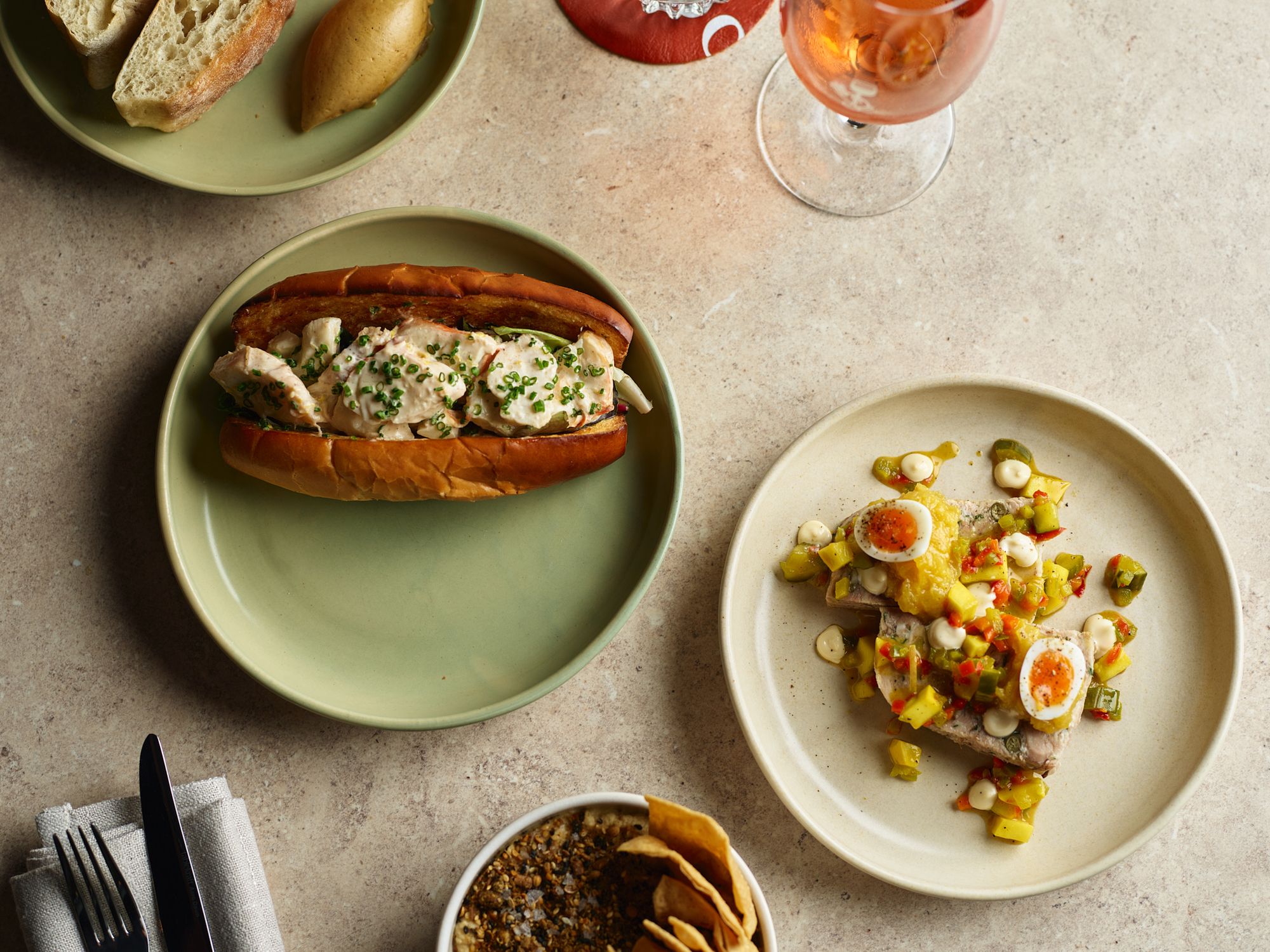
How did you navigate all that stuff as a first timer? Do you miss not having other business partners?
It's really good to have someone there to bear the brunt of it, to split the time with because it is going to be a lot of time. And also to split any issues with money. Say there's something that breaks down. It's like, okay, I'm not getting paid for the next month. And that's the reality of something breaking down in these spaces. At the end of Covid, down at Dee Why we had a fridge that broke, a fryer that broke, and we're still trying to get Banco up and running, which has defects and defects are an additional cost. So all of a sudden, we had about 6 percent defects in this space, which when you look at it in the scheme of the contract becomes a lot of money. So all of a sudden, it's not just okay, you don't get to get paid for a month — it's you're gonna go backwards for two months, and then you're not going to get paid for two months.
Having that reality and having that thought process is really fucking tough for people that have just come off a really nice job and they go: Okay, I've got the money.
This is something that I get in a lot of trouble for saying because going into this space, I don't take a salary. I don't take tips, I don't take any of the money at all out of the business. And I think the majority of the operators I talked to think, what the fuck are you doing? That makes absolutely no sense, you need to pay yourself a salary because if you step away, then that needs to be counted into your cost. But for me that money just doesn't make sense being pulled out of the business yet when we can put it back into the business, finish completing the business. That to me makes a lot more sense than forcing ourselves to take money out.
Given it is so hard, why did you do bar number two? Why did you go again?
So this is an interesting one. And I think this answer will probably evolve. And there's no real way of answering a lot of these questions. It's how I feel now and what I understand now that if you asked me to [asnswer] in six months, it's gonna be a completely different conversation. I feel Banco is exactly what I wanted to open in the first place. It's a nighttime spot that has the most incredible food getting pumped out by the boys, the drinks are crazy good, and in a space that is intimate and small and it's a space that I can walk around and serve and touch all tables. I can really look after them, you know?
In Corretto, coming from a big pub background, I was thinking it was a small venue — it's a really big venue. I didn't realise that when I walked in — it's 110 seats. I'm walking into it from a pub, [thinking] how the hell am I gonna make this tiny place work? But once I got in there, I was like, this is really big. Like, we've got 25 staff there. You're going from 7am to late, people usually walking out there at 12 o'clock, and it's still a restaurant, it's all fully table service. So it's a really, really big operation.
With Banco, what we're doing, we're kind of refining everything we're doing, okay, we can make 10 of the best cocktails tonight, we can serve really nice wine and in really nice glasses and touch on every table and explain to them exactly what they're drinking. We can do a set menu with Chef that he can change every day.
The stuff that makes creative Kurtis happy.
Yeah. And that's hospitality. Like it's not just churning people through, it's not saying hey, come, sit, eat, get out. It's saying, hey, come sit, stay, enjoy, eat, drink, drink some more.
A big thing, which we wanted to build with the space was this idea of the cockpit, which is that the bartender is really the hero, and we wanted to extend that into the kitchen. Because traditionally, the kitchen is kind of closed off, it's in the background, you can't really see the boys. But in this space, it's completely open, the two are connected, because we want to bring food to the forefront. Like we want to say that it's a restaurant bar.
I love watching the show as well.
Yeah, and it gives you a really good idea about how the food's being cooked, what they're doing with it. It's a lower height bar as well. So you can really see into what Pino and myself are doing behind the bar. And it's really interactive. Like the best thing is your mum and dad's kitchen, you're in there and everyone gravitates to the kitchen in a home setting, regardless of what the layout of the space is. So why not do that in a bigger sense — in a more commercial sense? And that's pretty much what we tried to build here.
Say you're speaking to bartenders who want to open a place —would you say it's a good idea to go ahead?
If you've got the itch to do it, you're never going to get rid of it. Just genuinely, like if you've got the headspace of I want to do this, you will never satisfy that unless you actually do it. And realistically, if you do it and it doesn't work, maybe you take a year or two to claw yourself back. But there's no reason not to do it. There's no downside to doing it. Like it's just a little bit of extra work on the other side. As long as you frame it in a way of what you can achieve. Don't go, ‘I’m gonna buy a pub. Let me just spend millions of dollars on it and and none of my money but I'm gonna have four partners and this is going to set me up for life.’ Don't fucking do it. If you want to do it, find a little space, find something that can reflect you and just go all in. Because on the other side of it, it's just a little bit of extra work to get back — you will never get rid of that itch unless you just do it.
What do you love about the bar?
I think the hospitality industry is one that, it's never about breaking each other down. Talk to someone older that has done it because it's so open, we're such an open book. I remember I used to to speak to guys like Dre Walter’s from Old Mate’s Place, Jared Merlino from The Lobo, I used to chew everyone's ear off, and they didn't fucking know who I was. But there's always something to be learned from the older guys. And they all are the people that you can reach out to and just say, help me with this?
Do you find that people who are really good at what they do tend to be the ones who are the most open to helping other people?
100 percent. And it comes back to that old thing about a bartender, you come into a bar and all of a sudden, 'Oh, I don't want you to see any of my recipes. I'm gonna batch everything. I'm going to hide all my recipes, because I don't want anyone to have it.'
That's not hospitality, we don't work in a world that if you have the best recipe, then you're the best person in hospitality — it's not that at all. It's not a recipe that works. The recipe that works is, genuinely care about someone, spend time in a space that you love and spend time doing what you really enjoy and that will reflect back on to the guest and the person that's in the space and they've got a really good experience. They will speak about the drink they'll speak about the food, they'll speak about all of that, but overall it's an experience.










